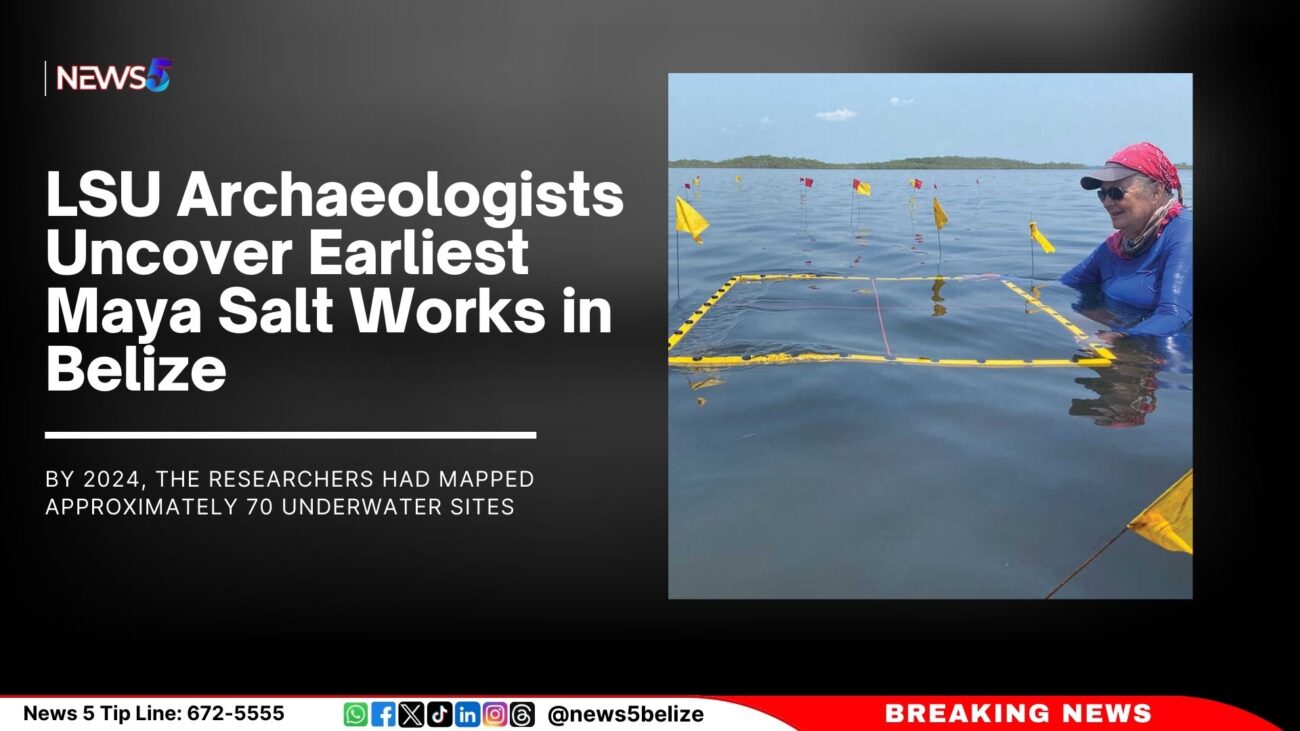LSU Archaeologists Uncover Earliest Maya Salt Works in Belize
Archaeologists from Louisiana State University (LSU) and the University of Texas at Tyler have uncovered the earliest known ancient Maya salt works in southern Belize. This discovery, detailed in the journal Antiquity, was led by LSU Alumni Professor Heather McKillop, who first found wooden buildings and artefacts preserved beneath the sea floor in 2004, including the only known ancient Maya wooden canoe paddle.
McKillop’s collaborator, Assistant Professor Elizabeth Sills from the University of Texas at Tyler, began working on this project as a master’s student and later as a doctoral student at LSU. Since the team’s initial discovery, they have identified a network of underwater sites featuring “salt kitchens” used to boil seawater, residences for salt workers, and other pole-and-thatch buildings—all remarkably preserved in red mangrove peat across shallow coastal lagoons.
By 2024, the researchers had mapped approximately 70 underwater sites, with over 4,000 wooden posts marking the outlines of ancient structures. In their 2023 excavation at a site known as Jay-yi Nah, the team noted its scarcity of broken pottery, unlike other salt works. The few pottery fragments discovered resembled those from Wild Cane Cay, a nearby island site also excavated by McKillop.
Further study of the artefacts and radiocarbon dating on wooden posts revealed that Jay-yi Nah dates back to the Early Classic period (AD 250–600), making it significantly older than other nearby sites. Unlike later salt works, which were integral to a larger trade network during the Late Classic period, Jay-yi Nah appears to have operated as a smaller, locally focused enterprise connected to Wild Cane Cay. Evidence of fish bones preserved at Wild Cane Cay suggests that salt produced at Jay-yi Nah may have been used to preserve fish for local consumption or trade.
This discovery sheds new light on the origins and development of salt production in the Maya region, providing a glimpse into how small-scale local operations evolved into the extensive salt trade that supported Maya civilisation at its peak.
British Museum Charges $225 BZD to View Looted Xunantunich Altar Hidden from Belizeans







Facebook Comments